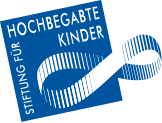Literature for Parents
A Parent's Guide to Gifted Children
Webb, J.T. (2007). A Parent's Guide to Gifted Children. Scottstale: Great Potential Press, Inc
Flourish - A visionary understanding of happiness and well-being
Seligman, M. (2012). Flourish - A visionary understanding of happiness and well-being. New York, Toronto: Atria Books
From gifts to talents
Gagne, F. (2005): From gifts to talents. In: R. J. Sternberg, J. E. Davidson (Hg.): Conceptions of giftedness. New York, S. 98–119
Gifted children
Winner, E. (1996). Gifted children. Myths and realities. New York: Basic Books
Gifted Lives
Freeman, J. (2010). Gifted Lives. What happens when Gifted Children Grow Up. East Sussex Routledge
Light Up Your Child’s Mind
Reis, Sally M. & Renzulli, Joseph S. (2009). Light Up Your Child’s Mind: Finding a Unique Pathway to Happiness and Success (Little, Brown and Co., 2009)
The social and emotional development of gifted children. What do we know?
Neilhart, M.; Reis, S.M.; Robinson, N.M.; Moon, S.M. (2002). The social and emotional development of gifted children. What do we know?. Prufrock Press, Inc. Waco, Texas
Transforming gifts into talents
Gagne, F. (2003). Transforming gifts into talents: The DMGT as a developmental theory. In: N. Colangelo & G.A. Davis (Eds.), Handbook of gifted education (3rd ed.). Boston: Allyn and Bacon
Understanding the social and emotional lives of gifted students
Hébert, T.P. (2011). Understanding the social and emotional lives of gifted students. Waco,TX: Prufrock Press Inc.
Literature for Teachers
Being gifted in school
Coleman, L.J. & Cross, T.L. (2005). Being gifted in school. An introduction to development, guidance, and teaching. Waco, Texas: Prufrock Press
Conceptions of giftedness
Sternberg, E. J. & Davidson, J. E. (2005). Conceptions of giftedness. New York: Cambridge University Press
Critical issues and practices in gifted education
Plucker J. & Callahan C.M. (Eds) (2008). Critical issues and practices in gifted education. Waco, Texas: Prufrock Press
Curriculum Compacting
Reis, S. M., & Renzulli, J. S. (2005). Curriculum Compacting: An Easy Start To Differentiating For High-Potential Students. Waco, TX: Prufrock Press
Handbook of Gifted Education
Colangelo, N. & Davis, G. (2002): Handbook of Gifted Education, (3 ed.) Boston u.a.: Allyn and Bacon
Handbook of Self-Determination
Deci, E. L. & Ryan, R. M. (Hrsg.) (2004). Handbook of Self-Determination. Rochester: University of Rochester
IMM Independent Investigation Method
Nottage, C. & Morse, V. (2003). IMM Independent Investigation Method. 7 Easy Steps to succesful Research for students in grades K - 12. Active learning Systems Inc. New Hampshire
International Handbook of Intelligence
Sternberg R. J. (2004): International Handbook of Intelligence. Cambridge, UK: Cambridge University Press
Mentoring
Callahan, C. M. & Dickson, R. K. (2008). Mentoring. In: Plucker, J. A./Callahan, C. M. (Hrsg.): Critical Issues and Practices in Gifted Education. Waco, Texas: Prufrock Press, S. 409–423
Misdiagnosis and dual diagnosis of gifted children and adults
Webb, J.T. et al. (2016). Misdiagnosis and dual diagnosis of gifted children and adults: ADHD, bipolar, OCD, Asperger’s, depression, and other disorders. Scottsdale: Great Potential press, Inc
Multiple Intelligences
Gardner, H. (2006). Multiple Intelligences: New horizons in theory and practice. New York: Basic
Reflections on Gifted Education
Reis, S.M. (2014). Reflections on Gifted Education. Waco, TX, Prufrock
The autonomous learner model for the gifted and talented
Betts, G.T. & Kercher, J.J. (2009). The autonomous learner model for the gifted and talented. In. J. Renzulli, E.J. Gubbins, K. S. McMillen, R. D. Eckert & C. A. (Ed.). Little, Systems and models for eveloping programs for the gifted and talented (S. 353-382). Mansfield, CT: Creative Learning Press
The magic of mentorships
Purcell, J. H., Renzulli, J. S., McCoach. D. B., & Spottiswoode, H. (2001). The magic of mentorships. Parenting for High Potential, December, 22-26
The three-ring conception of giftedness
Renzulli, J. S. (2005). The three-ring conception of giftedness: A developmental model for promoting creative productivity. In R. J. Sternberg & J. Davidson (Eds.), Conceptions of giftedness (2nd ed.). Boston, MA: Cambridge University Press, pp. 217-245.National Research Center on the Gifted and Talented, University of Connecticut
To be Gifted & Learning Disabled
Baum, S. M. & Schader R. (2017). To be Gifted & Learning Disabled. Prufrock Press; 3 edition
Total talent portfolio
Purcell, J. H., & Renzulli, J. S. (1998). Total talent portfolio: A systematic plan to identify and nurture gifts and talents. Mansfield Center, CT: Creative Learning Press
Why Bright Kids Get Poor Grades And What You Can Do About It
Rimm, Sylvia. (2008). Why Bright Kids Get Poor Grades And What You Can Do About It: A Six-Step Program for Parents and Teachers. Tucson, AZ: Great Potential Pr., Inc
